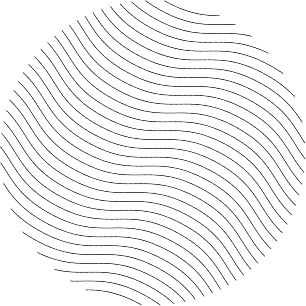Biography
João Evangelista Steiner, Brazilian astrophysicist (São Martinho, Santa Catarina State 01 March 1950 – São Martinho, Santa Catarina State 10 September 2020)
From German descent
His mother, Alzira Boeing, was a relative to brothers Wilhelm (that founded Boeing) and Werner Boeing
ASTROPHYSICS
Discovered 20 quasars and the pulsar HD7758 Vela X-1 (1977)
With J.E. Grindlay, W.R. Forman, J. McClintock & C.R. Canizares. Discovery of low redshift x-ray quasars: a possible new key to the QSO phenomenon. Bull. Amer. Astron. Soc. 12:777, 1979
With T. Chebowski & J. Halpern. Discovery of a cataclysmic variable near Sirius (1980)
With M.G. Watson, I.M. McHardy, J.P. Pye, F.J. Jablonski & I.C. Busko. A new x-ray cataclysmic variable. Bull. Amer. Astron. Soc. 12:885, 1980
With T. Chebowski & J.P. Halpern. Discovery of a new x-ray emitting dwarf nova. Bull. Amer. Astron. Soc. 12:885, 1980
With J. Stocke, J. Liebert, T. Maccacaro & R.E. Griffiths. Discovery of a narrow line quasar. Astrophys. J. 252:69-74, 1982
With J.E. Grindlay & T. Maccacaro. Discovery of two active galactic nuclei in clusters of galaxies. Astrophys. J. 259:482-5, 1982
Formulated a theory that the galaxies display a black hole in their nuclei
With J. Halpern. Low ionization active galactic nuclei: x-ray or shock heated? Astrophys. J. 269:37-41, 1983
With Francisco Jablonski discovered a dwarf star (VY) that describes a circular path around another star in only 97 minutes (1984)
With M. Garcia, J. Patterson, D.A. Schwartz, R.S. Warwick, M.G. Watson & J.E. McClintock. Identification of two hard x-ray emitting Be stars using the HEAO-1 Scanning Modulation Collimator. Astrophys. J. 280:688-94, 1984
Proposed the theory of LINERS explaining such common objects as mini-quasars
With F.J. Jablonski. NSV12615: an eclipsing cataclysmic variable with ultrashort period. Astrophys. J. 313(1):376, 1987
Proposed the existence of a new class of stars called V Sagittae Stars and explained their luminosity as due to hydrostatic nuclear reactions on the surface of accreting white dwarfs
With M.P. Díaz. The V Sagittae stars. Publ. Astron. Soc. Pacific 110 (745):276-82, 1998
With D. Cieslinski, F.J. Jablonski & G.R. Hickel. BY Apodis: a new Mira variable. Inform. Bull. Variable Stars 4528:1, 1997
First to observe the sudden death phenomenon of binary stars
With A.S. Oliveira, D. Cieslinski & T.V. Ricci. Assisted stellar suicide in V617 Sgr. Astron. Astrophys. 447(2):1-4, 2006
With R.B. Menezes & T.V. Ricci. Discovery of an Hα emitting disk around the supermassive black hole of M31. Astrophys. J. Lett. 762:L29, 2013
Showed the mechanism of formation of ionized gas winds in black holes
With D. May. A two-stage outflow in NGC 1068. Monthly Notices of the Royal Astronomical Society 469(1), 2017
Proposed an universal outflow mechanism by black holes
With D. May, R.B. Menezes, D.R.A. Williams & J. Wang. The nuclear architecture of NGC4151: on the path toward a universal outflow in light of NGC1068. Mont. Notices Roy. Astron. Soc. 496(2):1488-1516,2020
METHODS
A spectrophotometric classification of low-redshift quasars and active galactic nuclei. Astrophys. J. 250:469-77, 1981
With R. Baptista. Improving the eclipse mapping method. Astron. Astrophys. 277:331, 1993
With R.B. Menezes, T.V. Ricci & A.S. Oliveira. Mapping low and high density clouds in astrophysical nebulae by imaging forbidden line emission. Monthly Notices of the Royal Astronomical Society 396(2), 2009
With R.B. Menezes, T.V. Ricci & A.S. Oliveira. PCA tomography: how to extract information from data cubes. Monthly Notices of the Royal Astronomical Society 395(1):64-75, 2009
With R.B. Menezes & T.V. Ricci. A treatment procedure for Gemini North/NIFS data cubes: application to NGC4151. Monthly Notices of the Royal Astronomical Society 438:2597-20, 2014
With R.B. Menezes, P. da Silva & T.V. Ricci. A treatment procedure for VLT/SINFONI data cubes: application to NGC5643. Monthly Notices of the Royal Astronomical Society 450:369-96, 2015
With R.B. Menezes, T.V. Ricci & P. da Silva. A treatment procedure for GMOS/IFU data cubes: application to NGC2835. Monthly Notices of the Royal Astronomical Society (2019)


